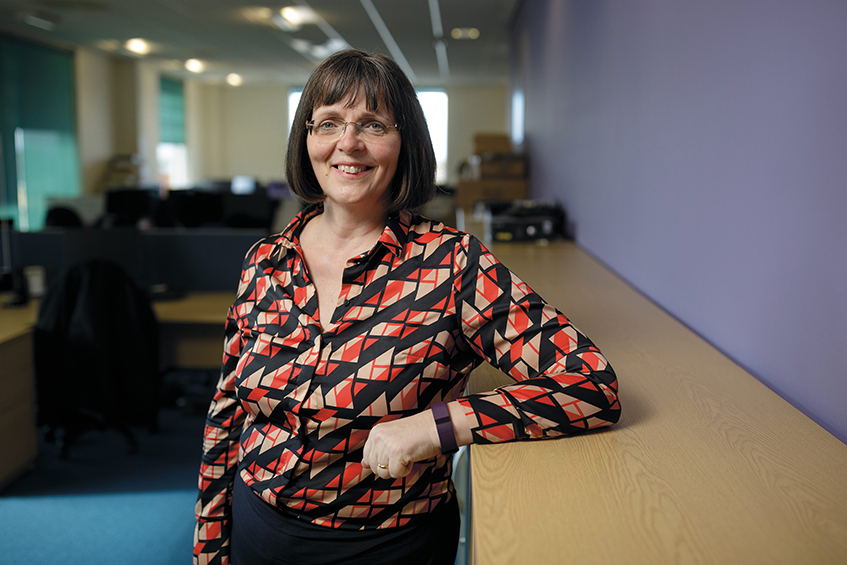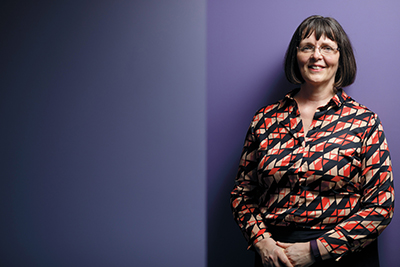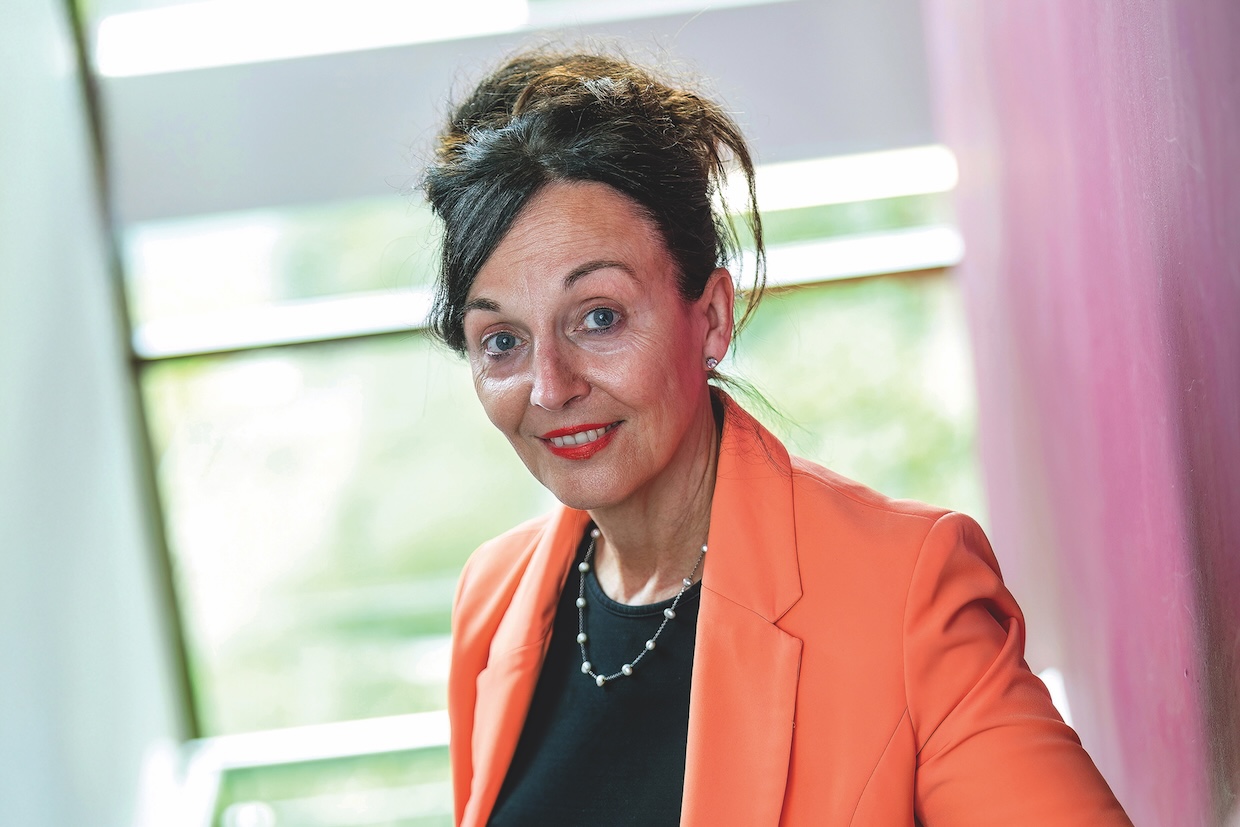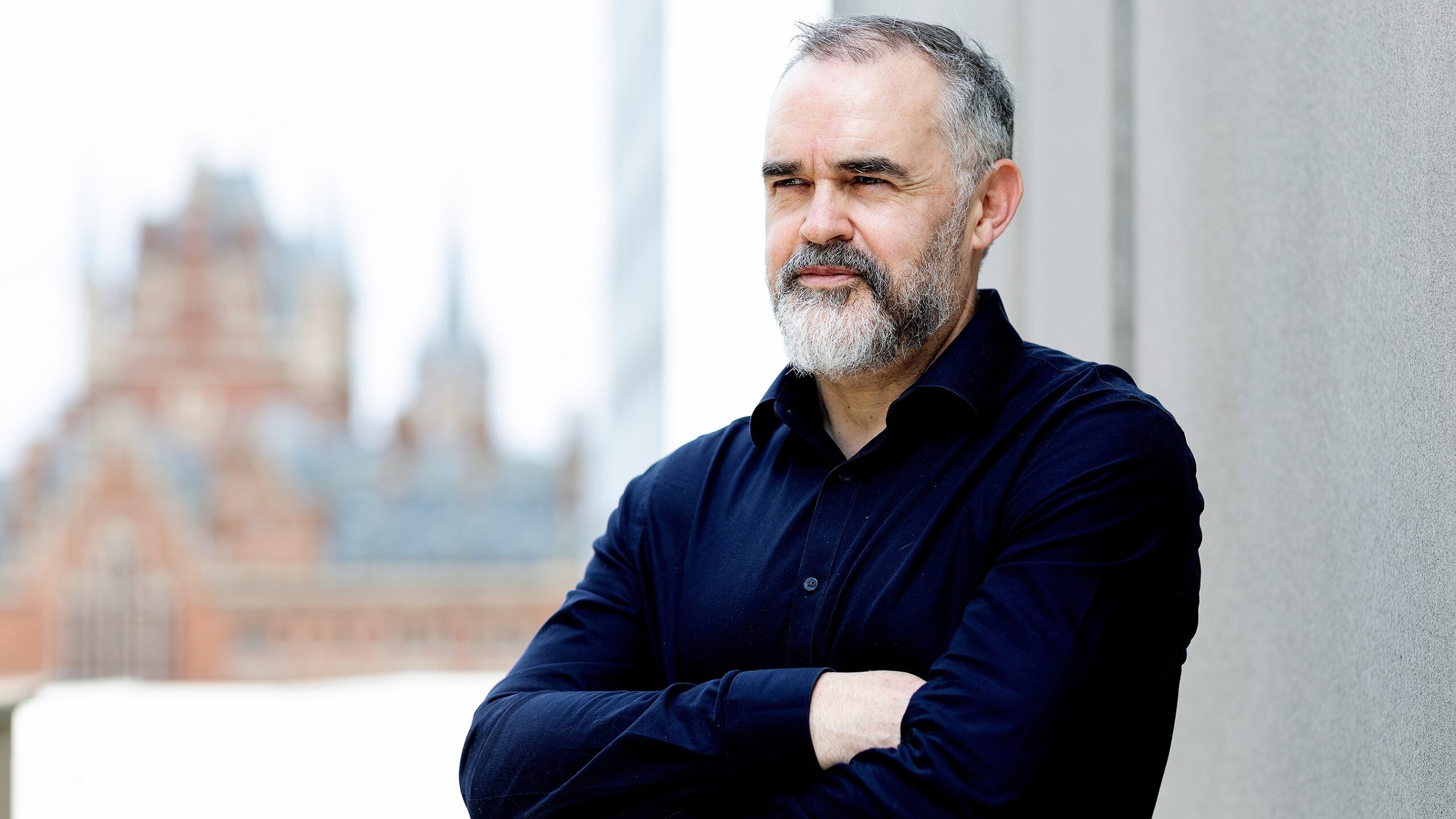Interview: Mary Hutton, leader of Gloucestershire STP

Despite Gloucestershire’s fierce attachment to local services and lively tradition of dissent, CCG and STP leader Mary Hutton believes the public will embrace real change.
Mary Hutton admits she’s an optimist – and there can’t be many of those left in the NHS after recent months. As both the lead for Gloucestershire Sustainability and Transformation Partnership (STP) lead and head of the county’s Clinical Commissioning Group, she claims to see positive changes happening and believes they will accelerate.
She’s particularly proud of strengthening the county’s services for prevention and self care. These include a large social prescribing service run jointly with the local authority, where GPs can refer patients to a range of local, non-clinical services, such as sports, volunteering and social groups. The CCG is also working with the voluntary sector on the commissioning of arts and cultural programmes that benefit the health and wellbeing of local people. “We’re seeing real change and will be publishing evaluation of this work in 2018-19,” she says.
Austerity has made funding this kind of work a challenge for all partners, but Gloucestershire has found money for slimming classes, for example. While health promotion initiatives can sometimes take decades to deliver, a few “quick wins” can help build support. In Gloucestershire, there’s a mix of both long-term and short-term projects. While some schemes should bear fruit within five years, others – such as work with primary-school children and their perceptions of health and self-care – may take much longer to deliver measurable health benefits.
Such projects are a sign of early success for the STP which, like many others, is looking to improve outcomes despite challenging finances – in this case, principally a deficit sitting with the main acute provider, Gloucestershire Hospitals Foundation Trust.
Moves to integrate care
Gloucestershire is hoping to be in the second wave of moves to an integrated care system, where commissioners and providers will work much more closely together. How this should be achieved – and whether the law needs to change to realise some of the potential benefits – is still a hot topic nationally.
Here, Hutton is again optimistic. “We can do 90 per cent of what we need to do without legislation,” she says. Organisations can do more to co-operate and work towards common outcomes while remaining separate and accountable, she insists. “It sounds a bit idealistic but I think we have a real vision of things changing dramatically.”
Most of the STP savings will come from streamlining and improving services, she says, rather than reducing them. Proposals for these are likely to lead to public consultation in the future but she points out that the public have been involved in other ways already.
“We have a large number of lay champion representatives as well as Healthwatch working with us on our transformation plans, and it’s clear that we would not have achieved the same answers without their involvement,” she says. “For specific schemes, we’ve worked with a reference group and are just increasing the number of people who will work with us on co-production of our plans. We’re at the stage now where we need to explain our messages clearly to ensure people want to work with us to develop and then support the future changes we propose.”
Hutton sees the future for acute services as quick diagnosis and treatment of conditions, with the patient returning ‘home’ as soon as possible. “We don’t want people admitted because they’re waiting on a diagnosis,” she says. “And things like IV antibiotics should be available in the community.”
She talks about the two large acute hospitals in the area – Gloucester and Cheltenham – becoming centres of excellence. Both are likely to get urgent care centres but whether each will offer 24/7 A&E has been the subject of much speculation locally: Cheltenham A&E has been closed overnight for serious cases for some years. However, Hutton suggests the public are “reasonable” about changes to traditional services. “They are beginning to understand that treatment in a bed is not always the best place for them,” she says.
Better ways of commissioning
Hutton has worked in the NHS for nearly 30 years, first in a health authority and then in the provider sector. She often had to represent her organisation in discussions with commissioners and that led to her wanting to get more involved in commissioning.
“I felt there was a better way of doing commissioning and I had to have a go myself,” Hutton recalls. She feels commissioning has shifted away from just driving good outcomes towards devising services which will improve people’s health and wellbeing. And commissioning has seen a shift towards clinical leadership – something she welcomes. “I think CCGs have got the right clinical leadership, although I think they need to be larger,” she explains.
A tradition of protest
NHS Gloucestershire, however, may be an exception to this. Serving a population of 620,000, the CCG is already fairly large and has the advantage of being coterminous with the county council and, to a large extent, other NHS organisations in the area such as Gloucestershire Hospitals. Despite including many affluent areas, Gloucestershire has pockets of deprivation – notably the Forest of Dean, but also parts of both Gloucester and Cheltenham.
There is fierce public attachment to local services, and not just in the acute sector. Protestors in Stroud saw off an attempt to close the town’s standalone maternity unit more than a decade ago and are vigilant about any perceived threats. Even a proposal by the community services trust to replace two ageing hospitals in the Forest of Dean with a new one has been controversial.
Many of the planned changes to services in the next few years will involve developing a different workforce, and she admits there is more to do on workforce planning. “We know the scale of the challenges we are facing. We have active work with partners such as universities in place, and hope to have plans developed by summer 2018,” she says.
With GPs, there has been a shift towards more “portfolio” careers, she says, which may include spending some time in an emergency or urgent setting – something which urgent care centres may help to provide. “Within primary care there has to be a real understanding of the kind of roles that people will want in the future,” she adds.
The county already has about 30 clinical pharmacists working in GP surgeries and is developing a mental health worker role – some are already in place and taking direct appointments in primary care.
Job losses unlikely
Hutton is keen to point out that, so far, none of the STP-driven changes have involved changing terms and conditions for staff and, with staff shortages in many areas, it’s unlikely that people will find themselves out of a job, although some may see their jobs change as new services are developed.
Driving forward multiple work streams across all parts of the health sector has been a challenge for many areas’ STPs, with management “bandwidth” often under pressure. In Gloucestershire, Hutton has pushed for collaborative and distributed leadership, with people in different organisations taking the lead on particular projects. “We need to have people owning the change,” she says. “The STP came at a good time.”
 “I felt there was a better way of doing commissioning and I had to have a go myself”
“I felt there was a better way of doing commissioning and I had to have a go myself”
Distributed leadership may also take some of the pressure off Hutton herself, as the key person for both the STP and CCG. The CCG releases her for two days a week to take on the STP role, while her deputy fills in for that time. However, her timetable is still hectic – my options for meeting her included the end of the day at a railway station, or mid-morning in a service station on the M5. But she’s adamant that it’s worth it – and the different organisations within the STP are working well together.
Hutton insists that, with less money around for everyone, each organisation has to be as efficient as possible. “I think we have identified areas where, if we work together, we can make the money work better for everyone. I am still quite driven by the idea that we should get value for money for the public purse,” she adds.
Even with so much on her plate, Hutton has no plans to move on just yet. “I’ve been at Gloucestershire for about seven years. It’s a long time, but [organisational change] takes a long time,” she says. “I’ve really enjoyed being a commissioner, though I have had that experience of being in a provider as well. I think the focus on population health and wellbeing is going to be the huge driver for the future. It’s really inexcusable for people to be admitted for a [range] of long-term conditions that can be managed at home.”
Integrity & leadership
Looking back, Hutton does feel she should have invested more in personal development in her early years. “I feel I’ve never really sat down and planned my career development. I’ve been offered opportunities and some really strong leaders have invested in my future,” she adds.
“For me, going through the King’s Fund’s Top Leader programme really allowed me to test my values and personal resilience, [learn] how to apply integrity and move to a more senior role, confident that I would not compromise my own values,” she explains.
And, like many women, her mid-career involved juggling family responsibilities and work. She spent ten years in an acute trust – albeit in different roles – which she says might not have been the best option for career planning, but did suit her other responsibilities.
“I do have one project I look back on with regret,” she recalls. “We had an organisation that needed to be changed and we didn’t invest enough in the planning phase, including finance and information. The project was not taken forward and I’ve now observed three different organisations grappling with the same problem over a ten-year period.”
Her advice to people starting a career in NHS management now is to understand their own values and stand by them, regardless of the challenge – something she feels is particularly relevant for finance manager, who can come under pressure to accept predictions and budgets they know are unlikely to be realised.
Hutton was in that position once. “I have been asked to accept a plan that was undeliverable and I was not going to do that.” The position was resolved with a compromise acceptable to all – but it’s no surprise that Hutton stood firmly by her principles.
Related News
-

Daniel Elkeles: “There’s a lot of green shoots here—the NHS is in a much better place”
As NHS Providers annual conference gets underway in Manchester, we speak to chief executive Daniel Elkeles about next year’s merger with the NHS Confederation and the future for NHS trusts in England. He tells Alison Moore that providers are “well placed” to deliver the Ten-Year Plan—but warns an unhappy workforce and a lack of investment could throw big spanners in the works.
-

Angela Hillery: “Nobody can do this on their own”
Angela Hillery, chief executive of community trusts in Northamptonshire and Leicestershire, is one of England most influential NHS leaders and a pioneer of collaborative working. She talks to Craig Ryan about why integrating services offers the best chance of overcoming a hostile environment and turning the NHS around.
-

We’ve given NHS management a home – we care for it and campaign for it
MiP is 20 years old this summer and its chief executive, Jon Restell, has been there since the beginning. He reflects on the union’s past, present and future in conversation with Healthcare Manager editor Craig Ryan.